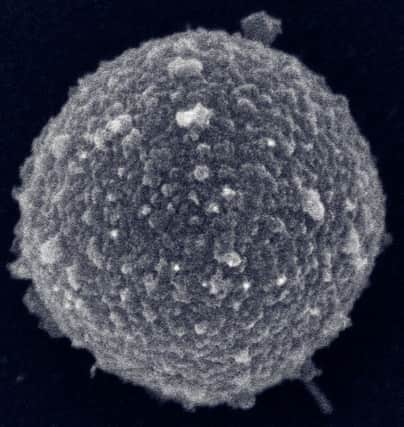Nine months since last MRSA Altnagelvin case


The latest figures show that as of June 1, it had been 273 days since the last hospital associated so-called ‘superbug’ MRSA case in Derry.
The figures were contained in the minutes of a recent Western Health and Social Care Trust Board meeting.
Advertisement
Hide AdAdvertisement
Hide AdThe Board was told that the Trust had taken part in an Infection Prevention Society hand hygiene campaign to “spread the message, not the bugs” earlier this summer.
MRSA (Methicillin-Resistant Staphylococcus Aureus )is a bacteria that has proved resistant to a number of antibiotics, which means that treating such infections can prove very difficult.
The bacteria is often present on the skin and inside the nostrils and throat of those affected, but if it gets through the skin, for example through a cut or wound, it can cause life-threatening infections, such as blood poisoning.
The number of MRSA cases has fallen from a high of 22 cases back in 2007/08, with a wide range of measures adopted by the Western Trust to help combat the potential spread of infection.
Advertisement
Hide AdAdvertisement
Hide AdMeanwhile, the number of cases of Clostridium Difficile (C-Diff) infections has also declined over recent years.
There were 11 cases of C.Diff in the first few months of the current financial year.
Of these, six were categorised as being community-associated, while there were no cases of hospital spread between patients.
C. Diff, is a bacterium that can infect the bowel and cause diarrhoea. It most commonly affects people who have recently been treated with antibiotics and it can spread easily to others.
Advertisement
Hide AdAdvertisement
Hide AdIn some cases, C-Diff infections can cause serious bowel problems, but are usually be treatable with a further course of antibiotics.
The Trust’s Board was told at its meeting that water testing has been continuing throughout key Western Trust facilities to help monitor the situation locally.
Replacing the pipe work in Altnagelvin’s wards 1 through to 5 is also scheduled to take place this year as a further infection control measure.
Western Trust Infection Control representatives have previously detailed how prevention of healthcare associated infection requires a complex combination of measures across a range of systems.
Advertisement
Hide AdAdvertisement
Hide AdThese include international care bundles, hand hygiene, non-touch techniques, equipment decontamination and control of antibiotics.
In addition staff education programmes have been rolled out locally and the dissemination of up to date guidelines and policies prioritised.
In terms of Caesarian sections, the Western Trust has the highest compliance rate for Surgical Site Infection Surveillance, achieving 100 per cent compared to an average of 71.8 per cent across the north.
Surgical Site Infection Surveillance for breast surgery was introduced by the Trust, in conjunction with the Public Health Agency, in July this year. The Western Trust is the first to introduce this.